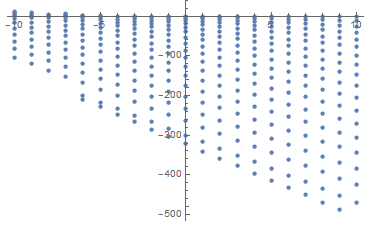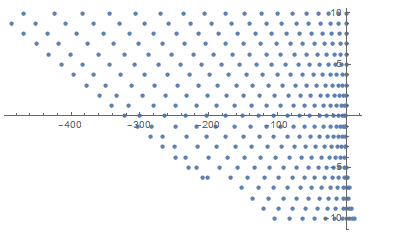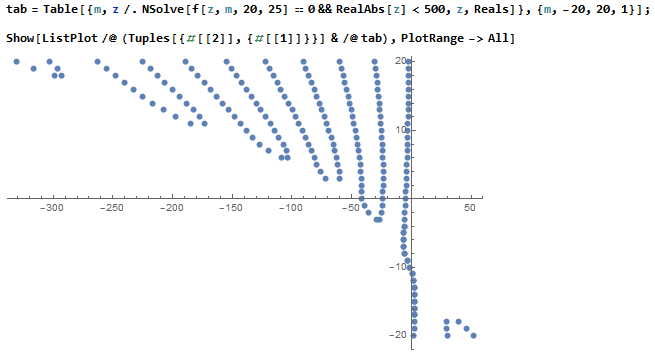Consider the following 2nd order recurrence relation:
$$A_{1}=1,\; A_{2}=z$$
$$A_{n+2}(z)=(b_n+z)A_{n+1}(z)+a_nA_{n}(z),\; n=1,2,3,...$$
where,
$$b_n=n\left(n+m+\frac{1}{2}\right),\; a_n=k^2n\left(n-\frac{1}{2}\right)$$
where $k\neq 0 \in \mathbb{R},m \in \mathbb{Z}$ are constants
What I want to find is $$f(z) \equiv \lim_{n \to \infty}A_n(z)$$
This will be an infinite series. I want to find the function $f(z)$ either in explicit form or a solution to a differential equation.
Naive attempt:
ClearAll["Global`*"];
sol[z_]:= RSolveValue[{A[n + 2] == (n (n + m + 1/2) + z) A[n + 1] +
k^2 n (n - 1/2) A[n], A[1] == 1, A[2] == z}, A[n], n]
This gives a DifferenceRoot object that I am not able to make much use of.
Edit 1:
As finding explicit $f(z)$ might be too much to ask for, I will be happy to know just how to efficiently determine the zeros of $f(z)$ for a fixed $k$(say $k=1$) and $m$ going from $m=0,\pm 1,\pm2,...,\pm10$ of $f(z)$ with $|z|<500$.
Edit 2:
As numerical estimation seems to be the only way out for now, I have opened a new question that is closer to my eventual goal: Zeros of a rational fraction sequence This post shall be updated if some analytic way is found.




k=0thenf[z]=Infinty or -Infinityfor all $z$ $\endgroup$